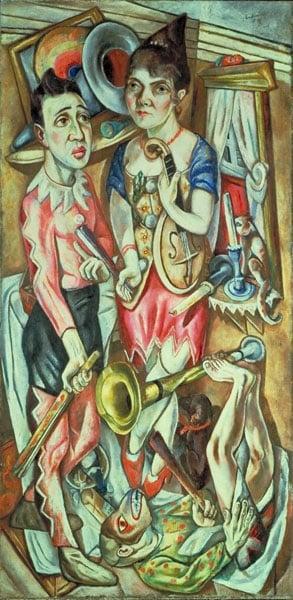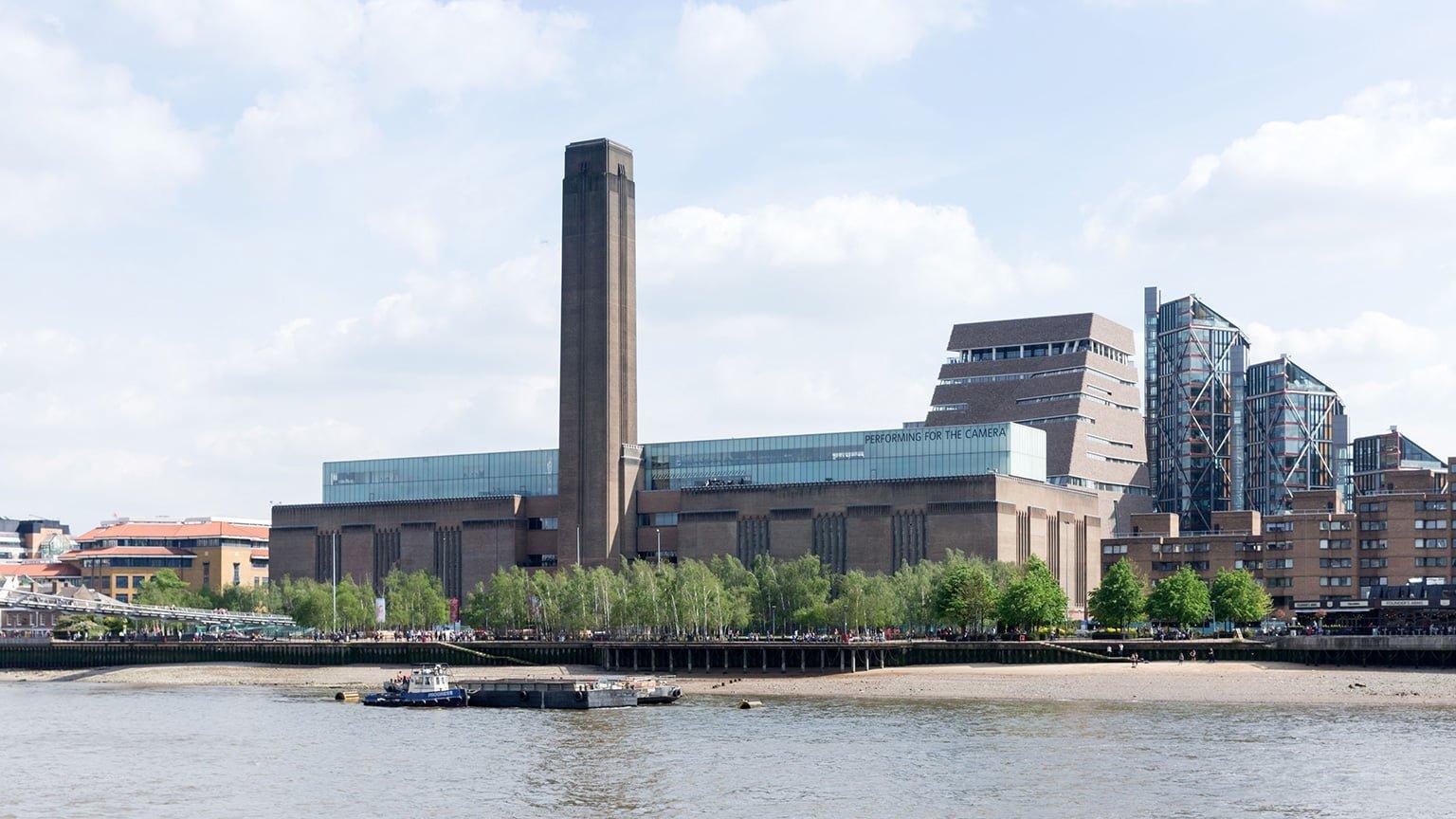
This is the first of several works in which Beckmann explored the theme of carnival, traditionally a cause for celebration, which the artist instead turns into an exploration of the isolation and loneliness of the human condition.
The picture was painted in Frankfurt, where Beckmann had been living in exile from his family after suffering a complete mental and physical collapse in 1915 while working in the army medical corps. The Harlequin is a depiction of Beckmann's art dealer, Israel Ber Neumann; Pierrot is his friend's wife and Beckmann himself appears masked and dressed as a clown lying at their feet.
The spiky shapes, claustrophobic setting and acidic colouring reveal Beckmann's debt to Gothic art. However the mood of soullessness and spiritual dereliction is his own and even a trumpet or candle appears like a menacing object of torture in this work.
More information
Title of artwork, date
Carnival, 1920
Date supported
1983
Medium and material
Oil on canvas
Dimensions
186.4 x 91.8 cm
Grant
6000
Total cost
400000

Get a National Art Pass and explore Tate Modern
You'll see more art and your membership will help museums across the UK
National Art Pass offers available at Tate Modern
Art Funded by you FAQs
Contact us
If you have a question about a work of art featured here, please contact the Programmes team. We’ll be happy to answer your enquiry.